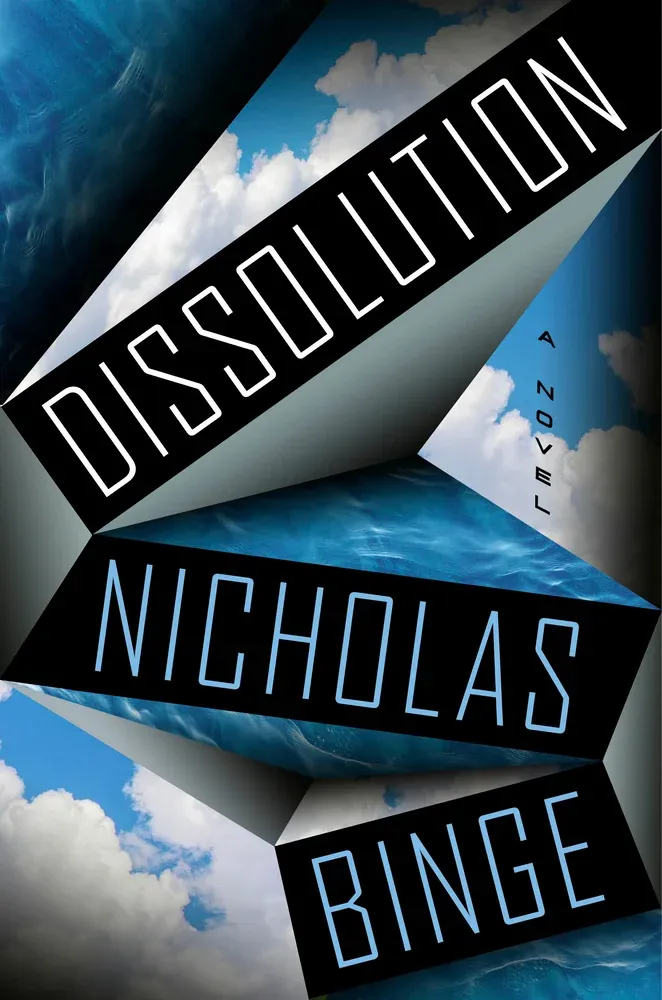The Maris Review, vol 48
What the world absolutely doesn't need right now: a MrBeast/James Patterson collab
What I read this week
Trauma Plot by Jamie Hood
"Why should I make my rape book artful? Why be cowed by this obligation. Shouldn't trauma be a mess?" A work of criticism unlike any I've read before, Trauma Plot is yes, messy and enraging and tragic, but it's also a beautifully controlled and rigorous attempt by its author to perceive her personal history with rape as an intellectual problem that she could then disambiguate. Jamie Hood is a literary critic and a poet and an empath who explores the narrative implications of trauma using her own personal story as her primary example. "Rape has always seemed to me a trouble of form; that is an interruption in or explosion of narrative," she tells her therapist, "It demands something different of storytelling..."
And so Jamie uses a variety of different forms to tell her story, one in which she . Trauma Plot is broken up into four sections and if, in the first section, Jamie Hood is a character in a novel who buys the flowers herself in preparation for an evening of entertaining, then the second section is more traditional, a memoirish piece of writing told in the first person. Perspectives vary, and while she grapples with grief and shame every section, she also writes beautifully on the challenges of the intellectual life, the day to day insecurity of trying to live as an artist at a time when the creative middle class barely exists. As the book progresses we see that for Jamie writing becomes a way out, or at least a way through. There is no neat little satisfying ending, but there are small bursts of hope that light the way. There is some joy. There is also a dog named Olive.
Jamie speaks a lot in the book about some of the failures of #MeToo, particularly the way "the women the movement was kindest to were those most proximate to power, the A-list actresses whose careers torpedoed, the CEOs of Fortune 500 companies whose careers were torpedoed, and so on," while leaving out trans women like Jamie along with nonwhite women and less affluent women. It seems like survivor memoirs by extremely privileged women are having another big moment right now, and I don't want to diminish the power of these books. But I'm so glad to see Jamie's account in the world, and I hope we (and the New York Times bestseller list) can make room for other kinds of stories and storytellers as we move forward.

Dissolution by Nicholas Binge
If you're looking for a book that's immediately propulsive and all-consuming (and who isn't these days?), here you go. It's a sci fi thriller set against the ticking of a countdown clock in which Maggie, an 83 year old woman who's spent the past several years watching the cognitive decline of her scientist husband Stanley, learns that Stanley's memory loss may not be a result of natural causes but something more sinister. It's up to Maggie to delve into Stanley's memories and try to figure out what's going on before time runs out (there's a way she is able to do this, I promise, but I'm not trying to explain it here).
Time travel novels will always be a little confusing, at least to me, because I tend to dwell on too many unanswerable questions. But the world in Dissolution is lucidly built, and it's so fun that it becomes easy not to worry too much about the details and just enjoy the ride. Dissolution is also surprisingly romantic – for all of the action and suspense, the love story of Maggie and Stan is the heart of the novel. In its portrayal of something that might be dementia Dissolution asks all of the big questions: what makes a life worth living and a memory worth cherishing, and what do you do if your beloved can no longer recall the life you shared.
What the world absolutely doesn't need right now

We live in hell. Deadline is reporting that publishing rights for the Mr Beast/James Patterson word salad extravaganza written by a bunch of ghost writers are getting 8-figure offers. If ever there was a circumstance that called for cheap generative AI, rather than $10 million in book advances, this is it.
It's just another big, obnoxious example of the death of the creative middle class. Time and time again we hear that publishers have very little money to spend on books by midlist writers, but there's always a spare $10 million (at least?) to spend when a (seemingly monstrous in every way) celebrity wants to put his name on a James Patterson book. Fewer and fewer writers can earn a living wage from writing books and they have a tough time getting institutional support for their work. The lower level staff at major publishers still struggle to make pay their rent if they don't have outside support. Libraries are imperiled and books are being banned left and right, but publishers still fins a way to pay obscene amounts of money to throw at, in this case, a little twerp who pays people to humiliate themselves for our viewing pleasure and chronically mistreats people he employs.
New releases, 4/1

A Little Daylight Left: Poems by Sarah Ksy
Flesh by David Szalay
The Usual Desire to Kill by Camilla Barnes
Fear No Pharaoh: American Jews, the Civil War, and the Fight to End Slavery by Richard Kreitner
Heartwood by Amity Gage
Sour Cherry by Natalia Theodoridou
Where the Axe Is Buried by Ray Nayler
Defund: Black Lives, Policing, and Safety for All by Sandy Hudson

